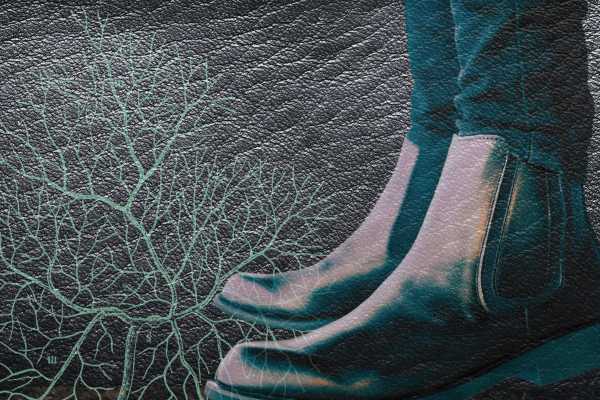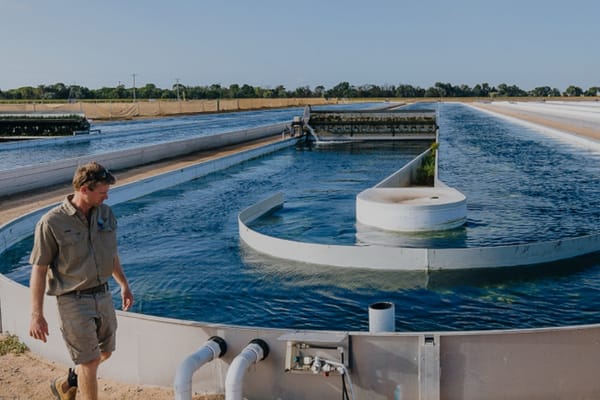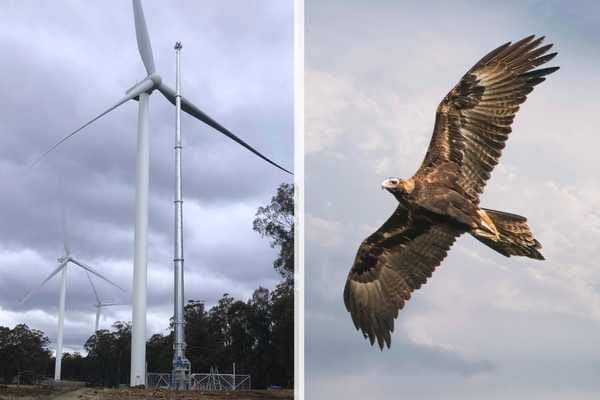Sustainable leather scales up
In this new factory, robots tend to mushrooms but instead of picking them they create luxury leather.

In this new factory, robots tend to mushrooms but instead of picking them, they turn them into luxury leather.
US biotech company MycoWorks has just unveiled a large new factory that it hopes will help meet rising demand for sustainable luxury leather that is animal- and plastic-free.
This factory, located in Union, South Carolina, is filled with fungi, but not just any fungi – mycelium, which is the root structure of mushrooms. MycoWorks is using its patented ‘Fine Mycelium’ tech platform to grow a biomaterial called Reishi.
Reishi is a leather alternative with a similar hand-feel, strength, and durability to high-end leather and is suited to luxury fashion – handbags and footwear – as well as vehicle interiors and home furnishings.
The company has already attracted some powerful partners including fashion brand Hermès and automotive giant General Motors
A bright future for funghi
MycoWorks’ facility is 12,600 square metres and employs 350 people, making it the largest mycelium material operation in the world.
Through the use of AI and automated guided robots (AGRs), the company has automated 80 per cent of its manufacturing process.
Construction of the factory began in 2022 and it features a tray-based mycelium growth system that the company successfully piloted in its original California plant (see tech box).
The San Francisco-based company was co-founded by artists Philip Ross and Sophia Wang in 2013.
MycoWorks says its progression into commercial-scale manufacturing is a sign of maturation for the biomaterials industry.
Sustainability scales up
“As MycoWorks continues to lead in biomaterial innovation, we are thrilled to open this first-of-its-kind facility in South Carolina,” Doug Hardesty, MycoWorks’ Chief Operating Officer says.
“This reality is thanks to our team of experienced manufacturing leaders and engineers from the consumer goods, automotive, food, pharmaceutical, and biotechnology industries who have adapted robotic equipment and systems to handle our unique tray-based biomaterials process.
“In turn, they have enabled the first high-quality mycelium material product at scale, a feat which has never been accomplished until now.”
Fashion production makes up 10 per cent of humanity’s carbon emissions making it a prime target for disruption, but the road is proving rocky.
Another innovator Bolt Threads recently ceased production of its mycelium leather product Mylo after failing to gain sufficient funding despite attracting some heavy hitting partners including cruelty-free fashion designer Stella McCartney.
McCartney is now partnering with Mirum, another cruelty-free leather that is crafted with plant-based resin and layered on an organic cotton or regenerative cotton backing.
The tech
MycoWorks has developed a patented process for growing uniform sheets of interwoven mycelium grown to spec customised for thickness, surface features and dimension. Fine Mycelium technology is an advanced manufacturing platform and breakthrough in materials science that engineers mycelium during growth to form proprietary, interlocking cellular structures for enhanced beauty, hand-feel, strength and durability.
Who funds it
The plant was funded through a US$125 million Series C funding round in 2021 from Prime Movers Lab, SK Networks, Mirabaud Lifestyle Impact & Innovation Fund, DCVC Bio, Novo Holdings and several strategic customers and investors.
Is it ready to roll
The world’s first commercial-scale Fine Mycelium production plant began operating on September 20, 2023 in Union, South Carolina. It will produce Reishi, a high-end leather for use in luxury fashion, vehicle interiors and home furnishings.





